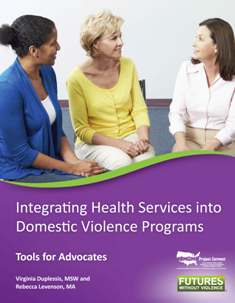The practice of serving, supporting, advocating with and for survivors is one that takes great flexibility, compassion, and skill. While there are some long-standing practices for serving survivors, there are always new ideas, tools, and theoretical frameworks that guide and enhance the work. Researchers and advocates are constantly learning more about intimate partner violence, and its impact on survivors and communities. Additionally, as agencies expand their understandings of diversity, inclusion, and justice, it is possible that the way the work happens may change. Organizational policies can benefit from exploring some of the best and promising practices for working with survivors who are HIV positive. Organizations and advocates may also consider partnering with local ASOs to do cross training, develop referral systems, conduct evaluations and even develop formal memorandums of understanding. This section displays some of the agencies serving survivors of domestic violence living with HIV and shares some of their insight, tools and resources.
 Integrating Health Services into Domestic Violence Programs: Tools for Advocates
Integrating Health Services into Domestic Violence Programs: Tools for Advocates
This toolkit is designed to assist domestic violence advocates in integrating onsite health assessment and primary health services into domestic violence programs. The toolkit provides an opportunity for domestic violence programs to create a culture of wellness and develop a more comprehensive array of services for their clients and staff. Included in the appendices are sample forms and protocols that have been adapted from the work done in a wide range of DV programs from around the country exemplifying service delivery models, as well as resources Futures Without Violence has developed as part of ongoing work with other states building DV advocacy-based health programs









